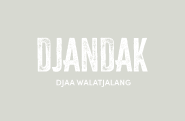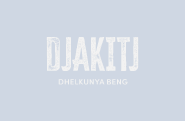Dja Dja Wurrung People of the Central Victoria area are the first Traditional Owner group to register intent to negotiate a Traditional Owner Treaty.
Under Victoria’s Treaty Negotiation Framework, Traditional Owner groups across the state can negotiate their own Treaties, which will reflect the aspirations and priorities in their local areas.
DJAARA (the Dja Dja Wurrung Clans Aboriginal Corporation) acting on behalf of Dja Dja Wurrung People (Djaara) started that process with a formal notification to the Treaty Authority – the independent body established to oversee negotiations for a statewide Treaty and Traditional Owner treaties.
Proud Dja Dja Wurrung man Djaran Murray-Jackson said local Treaties would provide a mechanism for Aboriginal communities to use local knowledge to come up with practical solutions at a local level.
“Local Treaty will be led by our mob and focus on the issues that are important here on Dja Dja Wurrung Country,” said Mr Murray-Jackson, who is the Dja Dja Wurrung Reserved Seat Holder at the Assembly and a Director of the DJAARA Board.
“Country, our connection to the land, is such an important part of who we are as Aboriginal people. So, there’s no doubt that initiatives around land and caring for Country, as articulated in our Dhelkunya Dja, Dja Dja Wurrung Country Plan, will be a focus for the negotiations.”
DJAARA, the organisation conducting the community’s preparations for Treaty, has seen close-up the benefits that come from embracing traditional knowledge and practices and celebrating the area’s rich living Culture.
The Corporation and its enterprises, collectively known as the Dja Dja Wurrung Group, deliver a range of programs including land management services, cultural immersion programs and bush tucker initiatives. These have helped breathe fresh life into ancient wisdom and generated numerous jobs and economic benefits for the region in the process.
Rodney Carter, who is the Dja Dja Wurrung Group’s CEO, said communities thrive when local people can call the shots about local decisions and when there’s a sense of connection and understanding.
“In addition to the practical decision-making powers at a local level, we know our community also wants to build understanding and pride in our Culture and language more widely.” said Mr Carter.
Mr Carter pointed to the façade artworks on and around Bendigo landmark buildings, such as the Law Courts and Galkangu – Bendigo GovHub, as well as upgrades to the jointly managed parks on Djandak (Dja Dja Wurrung Country), including around the Daylesford area.
Art, signage and language are some ways of providing everyone with a way to connect with and celebrate the oldest living culture in the world. Meanwhile, DJAARA’s suite of strategies for healing Country demonstrate how tapping into traditional knowledge can benefit everyone in Victoria.
Mr Carter said Dja Dja Wurrung had kept the local Country healthy for thousands of years, with the lands providing for his people – until they were forced off it.
“Everyone should be able share in the benefits of Country. For millennia, Djaara cared for Country and Country provided for us. But, since the 1830s, non-Aboriginal People have used Country’s resources to generate incredible wealth, establishing intergenerational advantage and privilege, while Djaara have been excluded.
“Our homelands have been turned upside down, and we’ve been prevented from practising our Culture. The playing field has been nowhere near level. Treaty will provide opportunities for us to get back on equal footing, to create a better future for our kids.” Mr Carter said.
DJAARA will now take steps to form a Delegation, which will be responsible for conducting negotiations for a Traditional Owner Treaty over Dja Dja Wurrung Country. The State will then be formally invited to commence negotiations. In the meantime, DJAARA will continue consulting with communities in the area to set the priorities to take into the Treaty negotiations.
“We’ve got a lot of big conversations to have with our mob over the coming months to work out how we want to use local knowledge to deliver practical solutions for our community. This is an exciting time for everyone who calls Djandak home,” said Mr Murray-Jackson.










































































